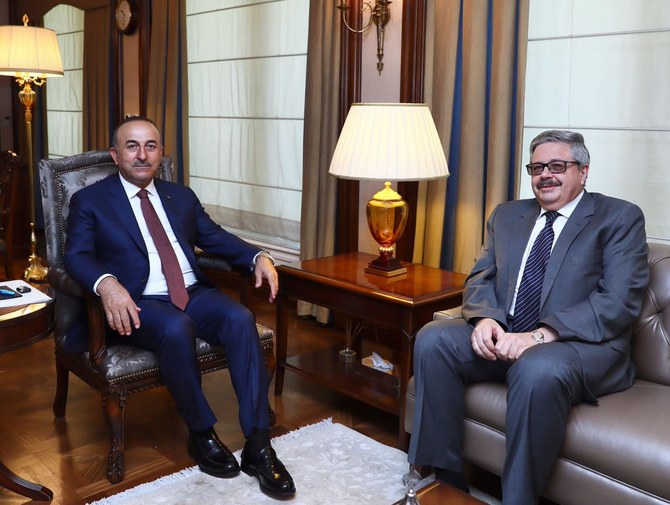ANKARA: A Russian ambassador said Wednesday that Turkey could do what it wanted with an air defense system purchased last year, likening it to a car that could be left in a garage or armed with a machine gun for war.
Turkey’s acquisition of the Russian S-400 missile system angered the US, which threatened punishments under the Countering America’s Adversaries Through Sanctions Act (CAATSA). The purchase is one dispute fueling tensions between the two nations who are also at odds over US support for Syrian-Kurdish militias, which Ankara brands as terrorists.
Russia’s ambassador to Turkey, Aleksei Erkhov, was relaxed about Turkey’s delay in activating the system.
“We’ve sold the system that Turkey wanted to buy,” Erkov told the CNN Turk channel in Ankara. “The owner of the system is Turkey. It is up to its decision to activate it or not. We sold the car, took the money and delivered the car. It is now your car,” he said, extending the metaphor. “You can go to the beach, carry potatoes or you can deploy a machine gun and go to war. But you can also keep it in your garage.”
Washington warned its NATO ally that the adoption of the S-400 missile technology alongside US F-35 fighters would pose a threat to the jets and endanger Western defense, saying it would halt the joint F-35 program with Turkey if it acquired the Russian missile defense system.
The envoy’s CNN remarks were interpreted by some as paving the way for Turkey to avoid a diplomatic crisis.
Ozgur Unluhisarcikli, the Ankara director of the German Marshall Fund of the United States, said the ambassador’s comments were intriguing especially because the interview was with a pro-Erdogan channel.
“There seems to be coordination with the Turkish government,” he told Arab News.
He said that while it was too easy to read Erkhov’s remarks as a green light for President Recep Tayyip Erdogan to further delay activating the S-400, it could also be that Russia was confident he would in fact deploy it and strengthen his hand in terms of public opinion. If Turkey activated the S-400 it would not be because of Russian pressure but Erdogan protecting Turkey’s interests despite US pressure, he explained.
Joe Macaron, a resident fellow at the Arab Center in Washington, said Russia seemed to be understanding of Turkey’s predicament on the S-400. The Turkish economy was suffering because of the coronavirus pandemic and it could not afford to deal with US sanctions at this juncture.
“What matters for Moscow is that the S-400 was sold to Ankara and does not want to see the S-400 deployed on the Turkish-Syrian border as the political opposition in Turkey is proposing, hence the statement of the Russian ambassador in Ankara seems to be like a compromise that would satisfy all the players concerned,” he told Arab News.
But there was also a larger trend of Turkey aligning with the US more than it was with Russia and Moscow was watching closely, he added.
Turkey has been delaying the activation of the missile system on the pretext of the pandemic.
The months-long training of Turkish technicians who will operate the S-400 was completed recently but, on the other hand, Turkey and Russia are still negotiating the second delivery of the system that could come with technology and know-how transfer, a longstanding request from Turkey.

























